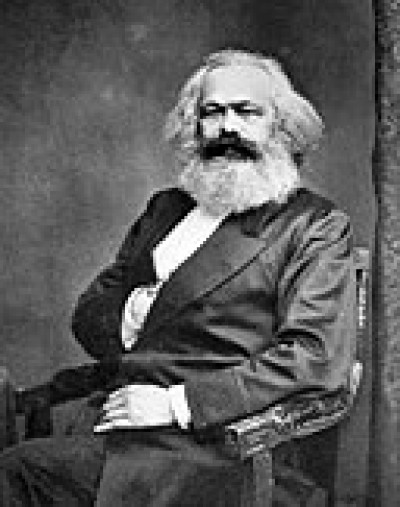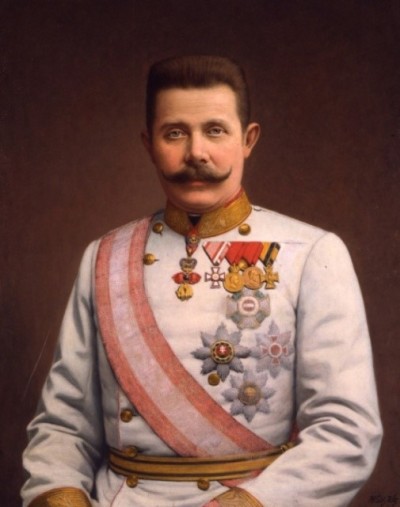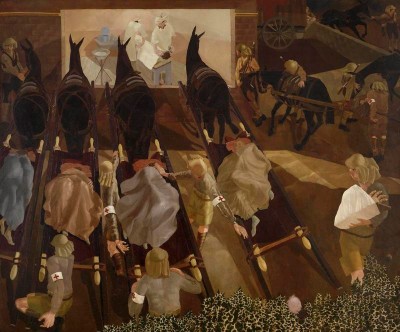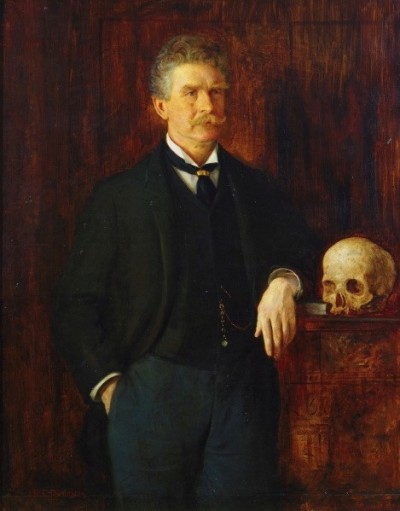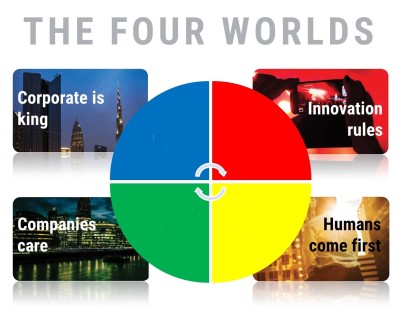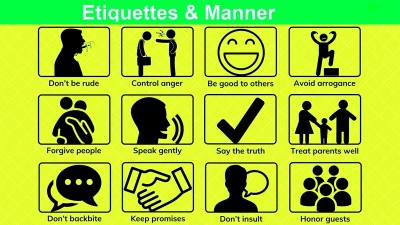Course description
Karl Marx
Founder of Communism
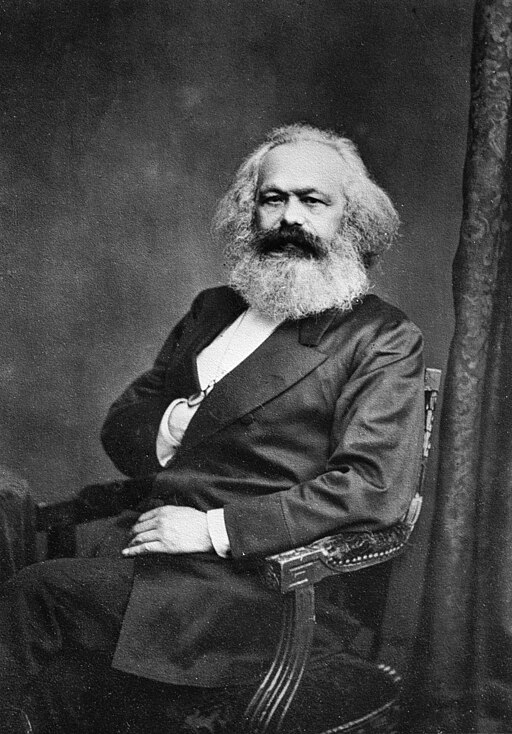 Ask students in modern Bangladesh what they know about communism and the chances are that they will mention atheism as one of its major principles. A few may talk about failed revolutions in Russia, the atrocities committed by Stalin in the Soviet Union and Mao Zedong in China. Some of the world’s greatest literature of the twentieth century concerns totalitarian states, where freedom of speech is a crime and even freedom of thought is a dirty word. Very often, these books are based on Communist regimes. And then there is the threat of nuclear war between the capitalist democracies and the communist dictatorships! Even today, Russia and China are often seen as untrustworthy and the USA still does not trade with Cuba. In fact, the failure of Latin American left-wing governments is a favourite theme of western media. And all this is blamed on Karl Marx, the 19th century thinker who gave us the idea of communism.
Ask students in modern Bangladesh what they know about communism and the chances are that they will mention atheism as one of its major principles. A few may talk about failed revolutions in Russia, the atrocities committed by Stalin in the Soviet Union and Mao Zedong in China. Some of the world’s greatest literature of the twentieth century concerns totalitarian states, where freedom of speech is a crime and even freedom of thought is a dirty word. Very often, these books are based on Communist regimes. And then there is the threat of nuclear war between the capitalist democracies and the communist dictatorships! Even today, Russia and China are often seen as untrustworthy and the USA still does not trade with Cuba. In fact, the failure of Latin American left-wing governments is a favourite theme of western media. And all this is blamed on Karl Marx, the 19th century thinker who gave us the idea of communism.
Yet, Marx is, without any doubt, the greatest and most influential political figure of the nineteenth century. As he died in 1883 in London, we can hardly blame him for the dictatorships of Lenin and Stalin a thousand miles away in Russia several decades after his death. Nevertheless, the only nation which does not follow capitalist policies today is North Korea. All others have, more or less, abandoned Marxist economic ideologies: China, Vietnam, Russia, Cuba… the list goes on and on. How can we argue, therefore, that Karl Marx was so important?
 Marx was concerned with the fundamental question of what it meant to be free. He believed that humankind was not adapted to survival in the natural environment as animals were but needed to group together to overcome this handicap so that they could hunt, build and cultivate more effectively, for example. Yet, after they achieved this goal, some people dominated others, limiting their freedom. There were rich citizens and senators who owned slaves in Babylon, Greece and Rome, for instance. Then, there were lords who sold ordinary people the right to build huts on their land and collected rent from them, often forcing them to plant and harvest the lords’ crops before they could gather their own.
Marx was concerned with the fundamental question of what it meant to be free. He believed that humankind was not adapted to survival in the natural environment as animals were but needed to group together to overcome this handicap so that they could hunt, build and cultivate more effectively, for example. Yet, after they achieved this goal, some people dominated others, limiting their freedom. There were rich citizens and senators who owned slaves in Babylon, Greece and Rome, for instance. Then, there were lords who sold ordinary people the right to build huts on their land and collected rent from them, often forcing them to plant and harvest the lords’ crops before they could gather their own.
History, in Marx’s opinion, was not the story of great men – and they were nearly all men, not women – who advanced progress but an account of a small class of rich and privileged people oppressing others. A very few lived in great luxury with huge wealth while the vast majority worked hard just to provide shelter and food for their families and themselves. In short, history is a never-ending story of a small class of the powerful controlling the lives of everybody else: conflict between classes. And class is based on ownership: of human beings themselves (as slaves), of land and, in capitalist societies, of machinery.
 To Marx, capitalism represented the most extreme form of this class struggle, as workers became distanced – he called it ‘alienated’ – from their own produce. Modern work could, he thought, be a source of great happiness and fulfillment to people because they could see their own achievements in the objects they made and take pride in them. In other words, workers could externalize what was good inside themselves! However, in factories, work became more and more specialized with each worker responsible only for one part of the process of production. She might not ever see the finished product she had helped to create and, so, could not take any pride in it. So, the modern – capitalist – workplace meant that what a worker did was not a reflection of who she was. That is alienation.
To Marx, capitalism represented the most extreme form of this class struggle, as workers became distanced – he called it ‘alienated’ – from their own produce. Modern work could, he thought, be a source of great happiness and fulfillment to people because they could see their own achievements in the objects they made and take pride in them. In other words, workers could externalize what was good inside themselves! However, in factories, work became more and more specialized with each worker responsible only for one part of the process of production. She might not ever see the finished product she had helped to create and, so, could not take any pride in it. So, the modern – capitalist – workplace meant that what a worker did was not a reflection of who she was. That is alienation.
Marx also argued that capitalism is subject to crises. These are usually portrayed as highly unusual and irregular happenings but, in fact, they are continual: with booms and recessions occurring all the time. Capitalist owners of factories, companies and large farms – called the bourgeoisie – easily dismiss people when there is a slump. Workers can just be thrown out of their jobs after years of service so that the bourgeois can continue to maximize profit.
People, on the other hand, have a deep need to feel they belong and that they are secure and safe. All this means nothing to the capitalist, of course. Therefore, insecurity is another way in which capitalism alienates us from our work.
 Finally, Marx stated that because a tiny minority of people had power and wealth – usually from birth – they were able to employ people for as little money as possible and so keep their profits high. The workers – or, as Marx called them, the ‘proletariat’ – had no capital and therefore were forced to sell their labour. The bourgeois then sold the products of his employees’ work at a much higher price than he paid them for producing it. This, Marx called, exploitation.
Finally, Marx stated that because a tiny minority of people had power and wealth – usually from birth – they were able to employ people for as little money as possible and so keep their profits high. The workers – or, as Marx called them, the ‘proletariat’ – had no capital and therefore were forced to sell their labour. The bourgeois then sold the products of his employees’ work at a much higher price than he paid them for producing it. This, Marx called, exploitation.
Yet, on top of this economic model, there was an ideological one which capitalism created to justify itself. Marx believed that leisure – the time we have to paint, read and cook – was a great benefit of human life, but capitalism termed it laziness (unless one had money). If capitalist means of production allowed us to produce surpluses quickly, why would we need to spend so much time at work? According to Marx, capitalism created a ‘commodity fetish’ where humankind linked its happiness and success to having more and more of everything, the most exclusive brands, the latest models. If we could not afford these, we were somehow failures – ‘losers’, as an American president would say. Of course, we compare ourselves always to those with just a little more income than we have and compete to earn the same… but the ladder climbs forever and ever. There is no top rung and so we are never satisfied or happy while there is someone with more than we have.
 Wrong! said Marx. Happiness can never be achieved by commodity fetish. We can only achieve it by looking within ourselves and defining our own goals and success.
Wrong! said Marx. Happiness can never be achieved by commodity fetish. We can only achieve it by looking within ourselves and defining our own goals and success.
I think you will agree that there is very little of the attitude towards life – or philosophy – described so far that is nasty, immoral or cruel. The difficulty with Marx’s reputation perhaps comes with his belief about the role of philosophy in the world. Here is how he put it himself:
“Philosophers until now have only interpreted the world in various ways. The point, however, is to change it.”
Now, Marx, who had been born in a small German state in 1818, educated and worked there as a journalist, had been forced to escape to France and Belgium to avoid imprisonment for his views and publications. He eventually found a home in London and got the opportunity to tour northern towns and factories with his friend, a capitalist himself, Friedrich Engels, who lived and worked in Manchester. At the age of twenty-four, Engels had written a book on the horrible consequences that the Industrial Revolution had had for most working people in that city and was a radical thinker himself. He showed the inhuman conditions in which men, women and even small children had to work and the even more dangerous circumstances in which they lived the (few) hours they could call their own. Marx was appalled.
 1848, the year of revolution in Europe, when people were demanding the end of absolute monarchy, voting rights, independence from colonialism and the abolition of serfdom, saw Marx and Engels collaborate to produce ‘The Manifesto of the Communist Party’. It was a call to action. The final words of the Manifesto are:
1848, the year of revolution in Europe, when people were demanding the end of absolute monarchy, voting rights, independence from colonialism and the abolition of serfdom, saw Marx and Engels collaborate to produce ‘The Manifesto of the Communist Party’. It was a call to action. The final words of the Manifesto are:
“Workers of the world, unite! You have nothing to lose but your chains!”
This was clearly a call for revolution. Why would Marx encourage people to join a bloody uprising? The answer is simple. He believed that the bourgeoisie would never give up their power and wealth unless they were forced to and violence was, therefore, unpleasant but necessary.
 Of course, the first successful revolution happened in Russia in 1917, when the Bolshevik communists seized power with Vladimir Lenin at their head. The seventy years that followed until the fall of the Berlin Wall in 1989, which marked the end of communist states in Eastern Europe, were characterized by mass starvation, secret police and the execution of whole communities of people in unjust trials – if there were trials. This is very far from what Marx would have wanted!
Of course, the first successful revolution happened in Russia in 1917, when the Bolshevik communists seized power with Vladimir Lenin at their head. The seventy years that followed until the fall of the Berlin Wall in 1989, which marked the end of communist states in Eastern Europe, were characterized by mass starvation, secret police and the execution of whole communities of people in unjust trials – if there were trials. This is very far from what Marx would have wanted!
However, whatever the outcomes of the revolutions and communist governments all over the globe, Marx should be honoured as the first scholar to argue that the basis of all social relationships is economic but that this need not be the case if we work in cooperation. As the great thinker put it: “from each according to his ability, to each according to his need.”
If you want to watch some videos on this topic, you can click on the links to YouTube videos below.
If you want to answer questions on this article to test how much you understand, you can click on the green box: Finished Reading?
Videos:
1. Was Karl Marx right? (3:22)
2. Karl Marx - Philospher & Revolutionary Socialist | Mini Bio (3:44)
3. Who is Karl Marx? (5:31)
4. The Russian Revolution 1917 (3:13)
5. The Revolution that Shaped Russia (4:03)
6. North Korea, the Most Depressing Country (4:13)

 Ask students in modern Bangladesh what they know about communism and
Ask students in modern Bangladesh what they know about communism and  Marx was concerned with the
Marx was concerned with the  To Marx, capitalism represented the most extreme form of this class struggle, as workers became distanced – he called it ‘alienated’ – from their own produce. Modern work could, he thought, be a source of great happiness and
To Marx, capitalism represented the most extreme form of this class struggle, as workers became distanced – he called it ‘alienated’ – from their own produce. Modern work could, he thought, be a source of great happiness and  Finally, Marx stated that because a tiny minority of people had power and wealth – usually from birth – they were able to employ people for as little money as possible and so keep their profits high. The workers – or, as Marx called them, the ‘proletariat’ – had no
Finally, Marx stated that because a tiny minority of people had power and wealth – usually from birth – they were able to employ people for as little money as possible and so keep their profits high. The workers – or, as Marx called them, the ‘proletariat’ – had no  Wrong! said Marx. Happiness can never be achieved by
Wrong! said Marx. Happiness can never be achieved by  1848, the year of revolution in Europe, when people were demanding the end of
1848, the year of revolution in Europe, when people were demanding the end of  Of course, the first successful revolution happened in Russia in 1917, when the Bolshevik communists seized power with Vladimir Lenin at their head. The seventy years that followed until the fall of the Berlin Wall in 1989, which marked the end of communist states in Eastern Europe, were
Of course, the first successful revolution happened in Russia in 1917, when the Bolshevik communists seized power with Vladimir Lenin at their head. The seventy years that followed until the fall of the Berlin Wall in 1989, which marked the end of communist states in Eastern Europe, were 